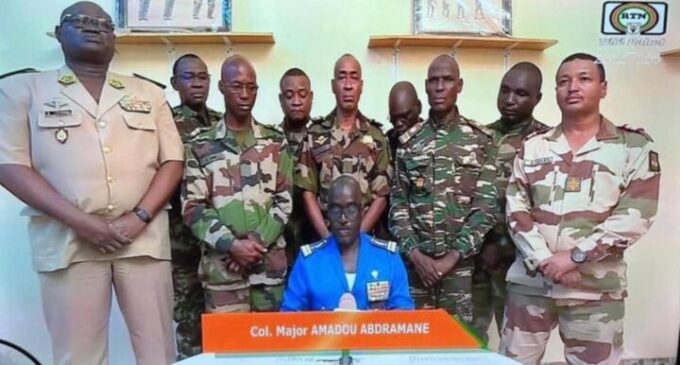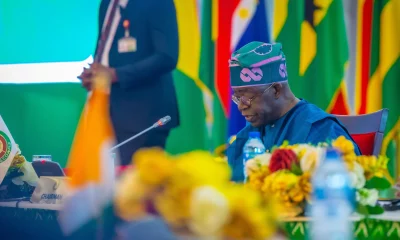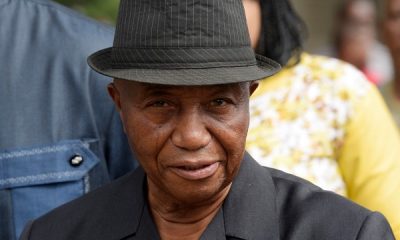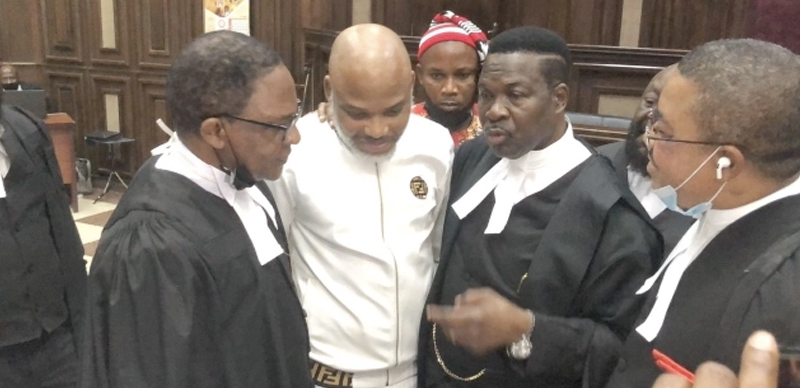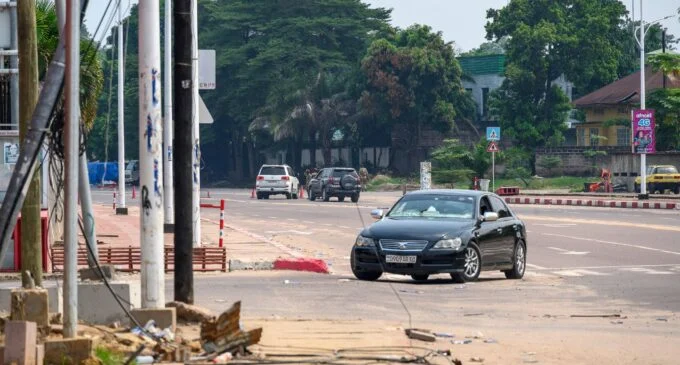Mali, Burkina Faso, and Guinea, three West African nations, have backed the coup leaders in Niger, a move that poses a threat to regional stability.
Previous coups in Burkina Faso and Mali were triggered in part by frustrations over the failure of authorities to stem an Islamist insurgency nagging the Sahel region, which includes Niger.
Following a tense 48 hours of political upheaval in Niamey, Niger’s capital, Abdourahamane Tiani, a general and former head of ousted President Mohamed Bazoum’s presidential guard, declared himself as the new head of state.
Tiani said the intervention had been necessary to avoid “the gradual and inevitable demise” of the country, and that while Bazoum had sought to convince people that “all is going well… the harsh reality (is) a pile of dead, displaced, humiliation and frustration”.
In an ECOWAS extraordinary session on Sunday, presided over by President Bola Tinubu, its chairperson, in Abuja, a resolution was reached to impose several sanctions on Niger over the military coup.
ECOWAS also issued a one-week ultimatum for the coup plotters to hand over power to the democratically elected government.
The decision comes days after President Patrice Talon of Benin Republic was deployed by the bloc to Niger to assess the situation.
Tinubu had strongly condemned the coup, saying ECOWAS would not tolerate any anti-democratic acts.
Tinubu also assured that the union will do everything to ensure that peace returns to Niger and the region at large.
BURKINA FASO AND MALI THREATEN WAR IF ECOWAS FURTHER INTERVENES
Shortly after the coup was announced, the Nigerien army command said it was supporting the seizure in a bid to thwart bloodshed.
The army also warned against foreign military intervention, adding that it might have “disastrous and uncontrolled consequences”.
So far, numerous calls from other countries and global organisations to reinstate Bazoum as president have been ignored.
Countries such as the United States and Germany, and organisations such as the European Union (EU) have suspended their financial support to Niger in condemnation of the coup.
Part of the ECOWAS’ resolution on Sunday was also to use all measures necessary to restore constitutional order in the Republic of Niger, including the use of force, if its demands are not met in a week’s time.
ECOWAS also closed all land and air borders between member countries and Niger and moved to suspend all commercial and financial transactions between member states and Niger.
In a joint statement on Monday from Mali and Burkina Faso, the countries warned ECOWAS against any further interventions that would “jeopardise the spirit of Pan-Africanism” and threatened a withdrawal from the regional bloc.
The countries also said any military intervention against Niger would force them to also adopt “self-defense measures” in support of the “brotherly” armed forces and the people of Niger.
The statement said the countries expressed their fraternal solidarity with the Nigerian people “who have decided in full responsibility to take their destiny into their own hands and to assume before history the fullness of their sovereignty”.
“The Transitional Governments of Burkina Faso and Mali are deeply indignant and surprised by the imbalance observed between, on the one hand, the celerity and the adventurous attitude of certain political leaders in West Africa wishing to use force armed forces to restore constitutional order in a sovereign country, and on the other hand, the inaction, indifference and passive complicity of these organizations and political leaders in helping states and peoples who have been victims of terrorism for a decade and left to their fate,” the statement reads.
“In any case, the Transitional Governments of Burkina Faso and Mali invite the living forces to be ready and mobilized, in order to lend a hand to the people of Niger, in these dark hours of Pan-Africanism.”
CONSEQUENCES WILL GO BEYOND NIGER, GUINEA WARNS
Mamady Doumbouya, Guinea head of state, said sanctions advocated by ECOWAS, including military intervention, are an option that cannot be a solution to the current problem.
He added that the sanctions would lead to a human disaster whose consequences could go beyond the borders of Niger.
In a statement on Monday, Doumbouya said Guinea was strongly behind Niger, and hailed the military for its interventions.
The head of state added that “the sanctions taken and the threats made at the summit of July 30, 2023 do not in any way commit the Republic of Guinea” and urged ECOWAS “to return to better feelings”.

 News3 years ago
News3 years ago
 Entertainment2 years ago
Entertainment2 years ago
 News3 years ago
News3 years ago
 Privacy3 years ago
Privacy3 years ago
 Sports2 years ago
Sports2 years ago
 Entertainment2 years ago
Entertainment2 years ago
 Opinion3 years ago
Opinion3 years ago
 News3 years ago
News3 years ago
